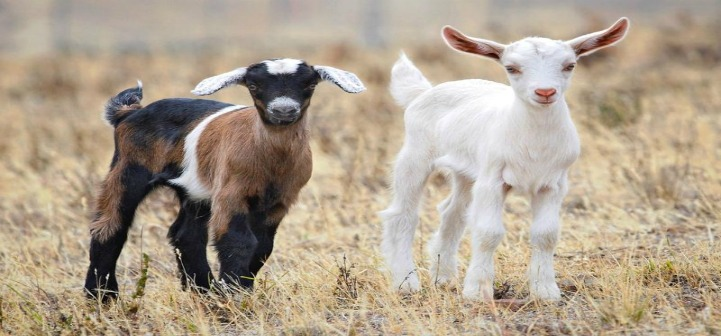
The Sunday News

Dumisani Nsingo, Senior Farming Reporter
FIVE years ago, Mrs Frederick Nxumalo of Gwamba Village in Lupane was just like any other villager.
Her main concern was to focus on her subsistence living, seeking just enough to keep her family going and rear a few livestock to occasionally sell and get a few dollars to meet immediate needs.
The few livestock she had was also some sort of traditional practice which has been passed for generations which measures wealth in terms of the number of livestock one has. But in 2011, Mrs Nxumalo and four other villagers decided to form Vusanani Co-operative, a grouping which was meant to venture into goat production on a semi-commercial basis. Vusanani is a SiNdebele word which literally means “wake each other up” and the villagers felt they are opening each other to opportunities of farming.
“When we started each member contributed one doe for the project,” she recalls. “It was not easy because we did not have much knowledge except the traditional way we used to rear the goats. It was almost like another household project but we decided to come together because we realised we can do more as a group.”
Within a year, the goats had sired and the project was beginning to blossom, she said.
Their breakthrough came two years later when a local organisation Lupane Women’s Centre chipped in with four more does and a buck under a project called “pass on the goat”.
“That is when we started reaping the fruits of the project. We started selling some of the goats. Each goat cost between $35 and $50 but since we do not have transport most of our buyers are from the local community and those that drive from major towns like Bulawayo and Hwange.”
The co-operative now has more than 35 goats. LWC is a non-profit making organisation registered as a trust working in the 28 wards of Lupane District. It has been in operation since 1994. Membership is open to all women and other marginalised groups.
Under the project, which has also benefited Vusananai Co-operative, Lupane Women’s Centre distributes goats to various women groups in the district. The organisation has distributed thousands of goats to 518 women in various parts of the district since 2009 through its “pass on the goat” project.
“We came up with a pass on the goat project for the sole purpose of ensuring asset accumulation and economically empowering women. Goats have a high birth rate compared to cattle and this enables women to generate income more often through selling them,” said LWC manager Mrs Hildegard Mufukare.
“Goats can survive on shrubs and need less manpower for tending to, making them a better choice than high-maintenance bigger stock like cattle, which are less tolerant of drought conditions,” said Mrs Mufukare.
Most farmers regard cattle as being more important than goats. In the case of limited resources, cattle always take priority, putting goats at a disadvantage. Generally most communities in Zimbabwe have preferred rearing cattle due to their multi-purpose uses compared to other forms of livestock. But over the years goats have proven an important role in income generation, capital storage, employment generation and improving household nutrition. For some farmers goat production is the only source of income. The animals are sold to boost cash inflows especially just before schools open when money is needed for school fees.
Throughout Zimbabwe, goats are used for services rendered such as hired labour and are used to exchange for grain in bad seasons. According to last year’s official statistics from the Ministry of Small and Medium Enterprises and Co-operative Development, there were approximately
136 000 goat breeders across the country, ranging from ordinary communal goat breeders to peri-urban goat breeders. Most of them rear the goats at communal level. But maybe the fairy tale story of Vusanani Co-operative can change that thinking.
“Through this agricultural enterprise we have managed to sell some of our goats and managed to drill a borehole, buy a few calves as we envisage growing our agricultural activities. In the event that there is illness within one of our members’ family we are able to sell one or two goats to enable that member to meet hospital and medication costs. We also sell the goats to pay school fees for our children,” Mrs Nxumalo said.
Their biggest advantage over other livestock is that they can strive well even during drought. They are also easy to keep with experts describing it as an as an easy entry-easy exit project due to its minimal built in costs.



